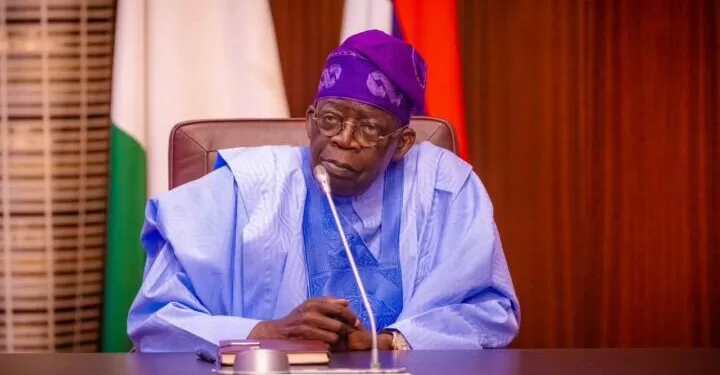The release of the much-anticipated ministerial list by the All Progressives Congress (APC) has sent shockwaves throughout Nigeria’s political landscape. At the center of this whirlwind is Bola Ahmed Tinubu, the influential political godfather and former governor of Lagos State. With his hand firmly on the pulse of the ruling party, Tinubu’s selection of potential ministers has raised eyebrows and sparked intense speculation. As Nigeria grapples with numerous challenges, from a struggling economy to widespread corruption, the unveiling of this list could be a game-changer. Will it bring about the much-needed transformation that the country desperately seeks? Or will it merely perpetuate the status quo? In this article, we delve into the significance of Tinubu’s ministerial list, exploring its potential implications for the future of Nigeria’s political landscape. Brace yourself for a rollercoaster ride of political intrigue and high-stakes maneuvering as we dissect the impact of this eagerly awaited revelation.
In Nigeria, ministerial appointments hold immense significance. They provide an opportunity for the ruling party to shape the direction of governance and policy-making. As the country grapples with numerous challenges, such as a struggling economy and widespread corruption, the selection of capable and experienced individuals for ministerial positions becomes crucial. These appointments can determine the success or failure of the government’s agenda and have a profound impact on the lives of millions of Nigerians.
Tinubu’s ministerial list, therefore, carries great weight in the eyes of the public. It represents a chance for him to influence the trajectory of Nigeria’s political landscape and shape the country’s future direction. Will he seize this opportunity to bring about the much-needed transformation that the nation desperately seeks, or will his choices simply perpetuate the status quo?

As a prominent figure in Nigerian politics, Tinubu’s influence cannot be understated. He has built a formidable political machinery, particularly in the southwest region of the country. His ability to mobilize support and garner loyalty has made him a force to be reckoned with. It is no surprise, then, that his hand is firmly felt in the selection of potential ministers.
Tinubu’s influence on the ministerial list is evident in the inclusion of several individuals closely associated with him or aligned with his political interests. This has raised questions about the extent to which his personal agenda and political ambitions may shape the composition of the government. While some argue that his influence ensures the appointment of competent individuals who share his vision for Nigeria, others fear that it may result in a concentration of power and create a system that is susceptible to cronyism and nepotism.
The unveiling of Tinubu’s ministerial list has sparked intense speculation about the individuals who may find themselves in key positions of power. While the final list is yet to be confirmed, several names have been circulating within political circles. Notable figures who are said to be in contention for ministerial appointments include seasoned politicians, technocrats, and individuals with strong ties to Tinubu’s political network.
Among the potential candidates are individuals who have a proven track record of success in their respective fields and possess the expertise needed to drive meaningful change. However, there are concerns that the ministerial list may also include individuals who lack the necessary qualifications and experience, potentially compromising the effectiveness of the government’s policies and initiatives.
Tinubu’s ministerial list has the potential to reshape political alliances and power dynamics within Nigeria. The inclusion of certain individuals can strengthen existing alliances and forge new ones, while the exclusion of others may lead to the erosion of support and the formation of rival factions. These dynamics can significantly impact the government’s ability to implement its agenda and navigate the complex terrain of Nigerian politics.
Furthermore, Tinubu’s influence on the ministerial list may also have implications for future elections. The inclusion of individuals who are loyal to him can bolster his political base and increase his chances of success in future electoral contests. However, it may also create a sense of resentment among those who feel marginalized or excluded from the decision-making process.
The unveiling of Tinubu’s ministerial list has generated a wide range of reactions from the Nigerian public. Supporters of the ruling party view it as a positive step towards addressing the country’s challenges and ushering in a new era of governance. They believe that Tinubu’s influence ensures the appointment of competent individuals who can drive meaningful change and deliver on the government’s promises.
However, critics argue that the ministerial list reflects a continuation of the same old politics and fails to offer a fresh perspective. They point to the inclusion of individuals with questionable track records and allege that personal interests and political calculations have overshadowed the need for competence and meritocracy.
Read Also: Nigerians using FCT police emergency numbers to obtain loans
Criticisms and controversies surrounding Tinubu’s ministerial list
Tinubu’s ministerial list has not been without its fair share of criticisms and controversies. Some skeptics argue that his influence over the selection process undermines the principles of democracy and creates a system that is prone to favoritism and cronyism. They worry that this approach may hinder the government’s ability to deliver on its promises and address the pressing issues facing the country.
Furthermore, there are concerns about the lack of transparency surrounding the selection process. Critics argue that the public deserves to know the criteria used to determine the suitability of potential ministers and that the absence of such information breeds suspicion and undermines public trust.
The composition of Tinubu’s ministerial list will undoubtedly have a significant impact on governance and policy-making in Nigeria. The appointment of individuals with the necessary skills and expertise can strengthen the government’s ability to tackle critical issues and implement effective policies. Conversely, the inclusion of individuals who lack the required qualifications can hamper progress and undermine the nation’s development.
The success of the government’s agenda hinges on the ability of the appointed ministers to work collaboratively and effectively. It is essential that they prioritize the nation’s interests above personal or political considerations and demonstrate a commitment to serving the Nigerian people.
As Nigeria moves forward, the unveiling of Tinubu’s ministerial list serves as a reminder of the challenges and opportunities that lie ahead. The country faces numerous hurdles, from economic diversification and job creation to tackling corruption and insecurity. The decisions made in the appointment of ministers will play a pivotal role in determining the success of the government’s efforts to address these challenges.
Furthermore, the unveiling of the ministerial list also highlights the need for a more inclusive and transparent political process. It serves as a call to action for the Nigerian people to demand greater accountability from their leaders and to actively participate in shaping the future of their country.
The release of Tinubu’s ministerial list has brought about a wave of anticipation and speculation. Its impact on Nigeria’s political landscape remains to be seen. While some argue that it represents a significant shift in the country’s trajectory, others remain skeptical, citing concerns about transparency and the potential for favoritism.
Ultimately, the success of Tinubu’s ministerial list will be determined by the actions and decisions of the appointed ministers. It is imperative that they rise above personal and political interests and prioritize the needs of the Nigerian people. Only then can Tinubu’s ministerial list truly be a game-changer for Nigeria’s political landscape.








